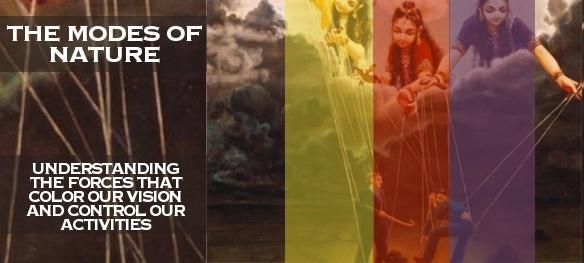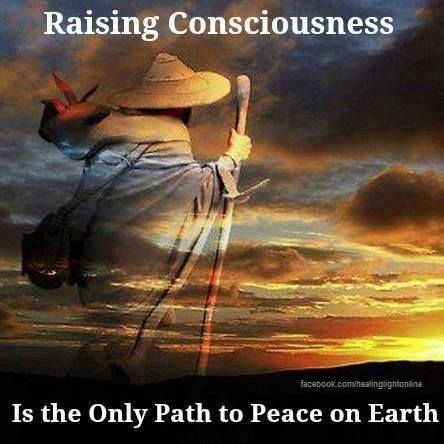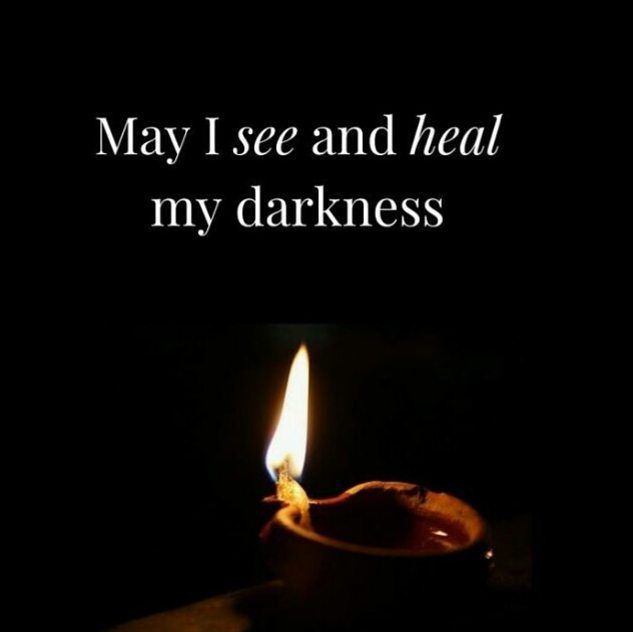I should mention as a prelude to this blog that while I am a follower of the basic processes given by Shrila Prabhupada and our Gaudiya Vaishnava acharyas regarding the practice of sadhana bhakti--and am in that sense traditional or conservative--in regards to the stage of "anartha-nivritti," or retiring our unwanted habits of thinking and acting, I am rather eclectic, and to some unconventional. However, please don't let that scare you away! There is a method to my madness.
I follow the maxim that whatever can assist us in bhakti can be accepted from whatever source, and as Prabhupada taught, "Judge by the results." In addition to the shastra or scriptural evidence is our own experience, and so I share that here. My reasoning is based on my own experience as a sadhaka (bhakti practitioner) coming from a rather violent alcoholic family, and from working with others from difficult families, which today is more the norm than the exception. This is important because it presents special problems or challenges to the ability of devotees to give their full attention and heart to chanting and other bhakti practices. The recommendation for going through anartha-nivritti given by Shrila Visvanatha Chakravarti Thakur, in his Madhurya Kadambini, is by sadhu sanga (associating with saints advanced in the path of bhakti) and pure chanting.
Not taking away from the importance of these practices, and trying my best to follow them, and encourage others to follow them, it is obvious to me, as well as my wife who is a trained therapist, that many devotees need additional supportive help to be able to take advantage of those core practices. That is a long discussion I have spoken of frequently in my blogs, but I thought I should mention this before going into a description of my current study. Not everyone will agree with me, but I have to share with you what my wife and I have found useful and empowering for devotees who we work with, and in our own lives.
My main inspiration, in addition to my and my wife's experience in counseling devotees, is my own healing journey through introspection and discovering that my mentality was extremely influenced by childhood defense mechanisms that although saving me from greater psychological damage, proved a very poor support for making spiritual progress beyond the basics. Thus my years of counseling, self-help, and the search to understand my conditioned nature, that though temporary, is our vehicle for engaging in bhakti. Whatever will help our mind and body be as supportive as possible for the long haul of a lifetime of spiritual practice should be accepted, and can be accepted as part of the first two principles of surrender given by Shrila Bhaktivinoda Thakur--to accept what is favorable for bhakti, and to give up what isn't. This will vary from devotee to devotee, and according to one's stage of spiritual advancement and material balance.
Presently, as I am still dealing with healing from stage four cancer, I have found this particular study useful in helping me understand some of the deeper reasons I have attracted cancer, while I also see it application for anyone who feels blocked in their spiritual advancement. So please keep an open mind and I humbly ask for your questions and thoughts. As it is said sometimes in hypnotherapy or in watching movies, "suspend disbelief." I don't say you have to immediately agree with, but agree to the possibility that there is value in what I am saying as I speak from my sincerity and experience in doing what I can to make spiritual advancement and in being the best human being possible. If you have doubts, please express them. Unfortunately, nowadays, people tend to discount someone who has a different opinion than they without any real dialog. Our world today suffers greatly from a lost ability, or really unwillingness, to consider other views outside our tribe, and we are becoming increasing isolated, like many floating insular bubbles, from those think and feel differently than we do.
In studying the chakras and their interface with the Christian sacraments and the Kabbalah’s tree of life, I am learning so many useful tools for specific and general healing, or if you like, purification and acceptance of our embodiment for its highest purpose. Some devotees are very shut down in regards to the first three chakras which among other things represent our connection and use of our physicality. Devotees sometimes feel so out of balance and at war with their body and desires that they become very out of balance and are handicapped by being ungrounded.
Interestingly, our being out of balance is often part of what brings us to bhakti. Never the less, if we don’t deal with such life issues at some point, even though at first, they that gave us the misery or “negative impetus” to seek a transcendental solution to our problems, they can be the undoing of our spiritual lives. Spiritual practice doesn’t get us off the hook for dealing with our embodiment and life conditioning issues!
The truth, as I understand it, is that “the problem” in not out there, but within ourselves—we are called to be fully present in our body, grounded in the earth, and connected to the universe, as a way to fully use our body and mind for its highest purpose of spiritual development. We are not just meant to escape the suffering of the world, or hide from it, or blame whoever wronged us for our problems, but to fully embrace our human nature, to celebrate the gift of human life, and reenter the world as a cause for upliftment.
There is only one person we are entrusted to change, and that is ourselves, but in the course of doing that, we are meant, as the overflow of taste and progress in our spiritual practices, to share our self-acceptance, peace, joy, and spirituality with others, by the power of love and compassion—and with detachment, as we cannot be dependent for our faith on who takes up the path.
Our task is not to “convert” the world, but internalize or digest the teachings in a very personal way that works for us, and then to teach by our example and thus attract those persons who are meant to take up the path. Our happiness, kindness, love and embodied wisdom, speak much louder that our words.
This is one meaning of “unconditional love,” as we don’t condemn other's inability to hear us, but we give freely what we are inspired by, and let the chips fall where they may. Whoever takes to bhakti is the responsibility of bhaktidevi, or Shri Radha, or we could say Shri Chaitanya and Nitai, who are, in our tradition, the mercy incarnations for this age—we are only instruments with our intention to advance ourselves and share that as we are called to. Your spiritual advancement is your best contribution to the world, even as you may or not be directly active in externally working for the benefit of the world.
However, regardless of how we are called to live and serve, we should not be callous to the suffering of the world, just thinking it other’s karma. Spiritual compassion for the soul, should include conventional compassion for the suffering of others, and the desire and prayer to be of service and help, at least in our immediate circle. As the Gita’s 6th chapter teaches us, the true bhakti yogi accepts other's suffering as their own. Each one of us has a different circle of responsibility and we should not be angry at those with a smaller circle than our own.
We don’t all have to save the world, but we do have to save ourselves through our commitment to all around self-improvement, and the softening of our heart, so that our heart shines with the good qualities of our soul blessed by our guru, the saints, inspirational persons, and Krishna. We can’t save others unless we are progressing in saving ourselves.

Of course, “saving ourselves” is not merely by our endeavor (i.e., “works”), as we are always dependent entities; but it means keeping ourselves in the Light and Love of Bhakti, or Radha and Krishna, through surrender and sacrifice, with the prayer to attract the mercy of Krishna, or the God of our understanding. We are always absolutely dependent on the Lord’s grace and those of his mercy agents, seen and unseen.
Changing for the better is always our most difficult and rewarding work, turning our personal darkness, or shadow side, into a strength, or a call to action to fortify and empower ourselves by being in alignment with “soul purpose” and Grace, and also helping others as we have been helped. I hope it doesn’t sound contradictory.
What I am saying is that our self-improvement and spiritual progress is primary, and yet that leads to naturally helping others. Becoming our highest and best self and helping others is an intertwined dance, that with the flow and ebb of life, will change as we change--these two “dance partners” can both strengthen the other.
This is a fascinating subject that is has me caught up in inspiration. As we give so we are blessed. Your thoughts and reflections are always welcome!





Comments
Wonderful thoughts and I share the same. Thank you Prabhu.
Your servant
Muralidhara dasa